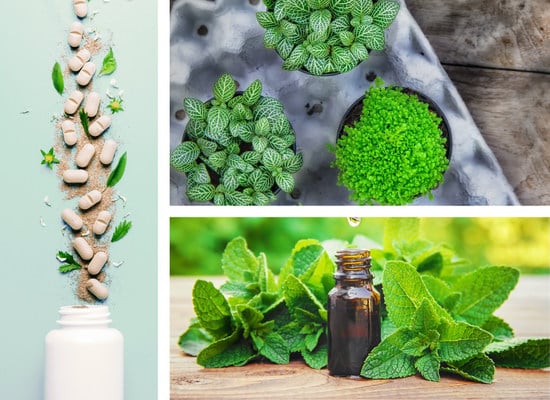Joint pain is one of the most common ailments affecting people of all ages, especially as lifestyles become increasingly sedentary and stress levels rise. Whether caused by arthritis, injury, or age-related wear and tear, chronic joint pain can severely limit mobility and overall quality of life. Fortunately, Ayurveda, India’s ancient system of natural healing, offers time-tested remedies that address the root cause of joint pain rather than just masking the symptoms. Through herbal formulations, detox therapies, and lifestyle balance, Ayurvedic medicine for joint pain provides a holistic approach to relief and rejuvenation that modern treatments often overlook.
Understanding Joint Pain Through the Lens of Ayurveda
According to Ayurveda, joint pain is primarily caused by an imbalance in the Vata dosha, which governs movement in the body. When Vata becomes aggravated, due to poor digestion, irregular lifestyle, or accumulation of toxins (Ama), it leads to stiffness, dryness, and inflammation in the joints. Over time, this imbalance may cause conditions such as arthritis, gout, or general joint degeneration.
Unlike conventional treatments that focus only on pain relief, Ayurveda aims to remove toxins, balance the doshas, and restore proper circulation to the affected areas. This comprehensive healing process ensures not only immediate relief but also long-term joint health and flexibility.
Ayurvedic Medicine for Joint Pain: Healing from the Inside Out
Ayurveda’s strength lies in its use of natural herbs and formulations that possess anti-inflammatory, analgesic, and detoxifying properties. These herbal remedies work gently on the body to reduce pain, improve lubrication in the joints, and rebuild cartilage naturally. Many effective products under Ayurvedic medicine for joint pain are available today, blending traditional wisdom with modern purity standards.
1. Shallaki (Boswellia Serrata): Known for its powerful anti-inflammatory effects, Shallaki helps reduce swelling, stiffness, and discomfort in arthritic conditions.
2. Guggul (Commiphora Mukul): Guggul has been used for centuries to support bone and joint health. It helps clear toxins from the joints and promotes better mobility.
3. Ashwagandha: This adaptogenic herb strengthens muscles, reduces inflammation, and helps the body cope with stress — a major factor that can aggravate joint pain.
4. Nirgundi (Vitex Negundo): A potent natural analgesic, Nirgundi soothes sore joints, relaxes muscles, and enhances flexibility.
5. Turmeric (Haldi): Rich in curcumin, turmeric is a powerful antioxidant that protects joints from oxidative stress and reduces pain caused by inflammation.
Ayurveda often combines these herbs in medicated oils and supplements to deliver maximum therapeutic benefits. Massage with warm herbal oils, such as Mahanarayan or Dhanwantharam oil, also improves circulation and helps relieve stiffness in the joints.
Ayurvedic Treatment for Joint Pain: A Complete Holistic Approach
Ayurvedic therapies for joint pain are not limited to herbal medicines. They also include personalized detoxification and rejuvenation techniques to remove toxins and restore joint vitality. Panchakarma — a cornerstone Ayurvedic detox therapy — is particularly beneficial for chronic pain conditions.
1. Abhyanga (Oil Massage): Daily massage with warm medicated oils helps improve blood flow, lubricate joints, and ease stiffness.
2. Swedana (Steam Therapy): Herbal steam treatment helps eliminate toxins and reduce inflammation around the joints.
3. Basti (Medicated Enema): One of the most effective treatments for balancing aggravated Vata, Basti detoxifies the colon and nourishes joint tissues.
4. Lepana (Herbal Paste Application): Applying herbal paste directly on painful joints provides immediate relief from swelling and discomfort.
5. Rasayana (Rejuvenation Therapy): Strengthening herbs and tonics are prescribed to enhance bone and joint tissue regeneration.
These treatments are customized based on individual body types (Prakriti) and the severity of symptoms. Together, they promote long-term healing and prevent the recurrence of pain.
Lifestyle and Dietary Recommendations for Joint Health
To get the best results from Ayurvedic medicine and treatment, it’s crucial to make supportive lifestyle changes. Ayurveda emphasizes the importance of diet and daily routine in maintaining joint health.
- Eat warm, nourishing foods: Include soups, ghee, and herbal teas to balance Vata and prevent dryness in the joints.
- Avoid processed foods: Reduce consumption of cold, dry, or stale foods that aggravate Vata.
- Stay active: Gentle exercises like yoga, stretching, and walking help maintain flexibility and prevent stiffness.
- Practice meditation: Mental stress can intensify physical pain. Meditation and deep breathing help calm the mind and relax the body.
- Get adequate rest: Sleep allows tissues to repair and reduces inflammation.
A balanced daily routine with mindful eating and regular physical activity complements Ayurvedic therapy and ensures lasting relief from joint discomfort.
The Final Thought: Long-Term Relief with Ayurveda
Ayurveda provides a complete roadmap for managing joint pain — from addressing root causes to ensuring lifelong mobility. The combination of herbs, detoxification, and lifestyle harmony creates an environment where the body can heal naturally. Regular use of Ayurvedic treatment for joint pain ensures sustainable relief, improved flexibility, and a better quality of life.
While modern painkillers may offer short-term comfort, Ayurveda’s holistic approach rebuilds joint health from within, making it a safe and effective choice for long-term wellness. By embracing Ayurvedic practices, you can experience not just freedom from pain but also renewed energy, balance, and overall vitality.
Frequently Asked Questions
1. How long does it take for Ayurvedic treatment to relieve joint pain?
The timeline varies depending on the severity of the condition and consistency in following the prescribed regimen. Generally, noticeable relief can be felt within 4–6 weeks of regular use of Ayurvedic medicines and therapies.
2. Can Ayurvedic medicine for joint pain be taken with modern painkillers?
Yes, Ayurvedic remedies can complement modern medicine, but it is essential to consult a qualified Ayurvedic practitioner before combining treatments to avoid any potential interactions.
3. Are Ayurvedic treatments suitable for all types of joint pain?
Absolutely. Whether it’s arthritis, gout, stiffness from aging, or injury-induced pain, Ayurvedic treatment for joint pain is adaptable to each condition, offering natural and safe relief for people of all ages.





Comments